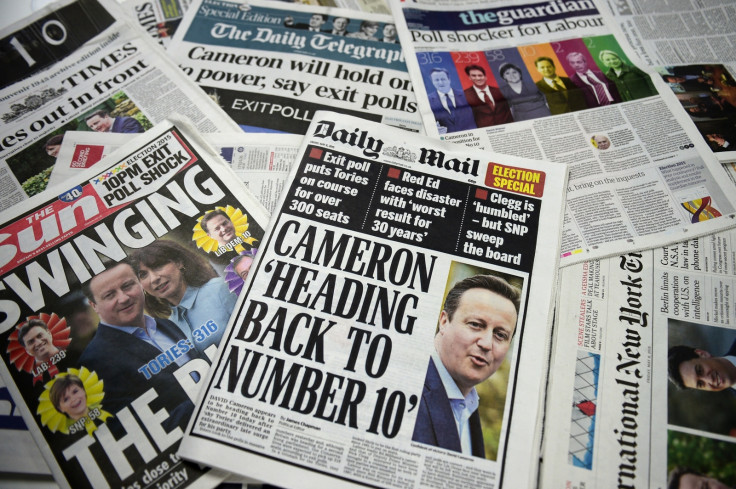Election 2015: Five reasons why the pollsters got it so wrong

It's not just the vanquished parties who will be licking their wounds this morning but the pollsters who all failed to predict an outright Conservative victory.
The Tories are poised to gain 329 seats -- more than the 326 needed to form a parliamentary majority -- a result pre-election polls called as nearly impossible, with most predicting the Tories would gain few more than 290 seats.
It is not the first time this year that the pollsters methods have come under scrutiny.
In the run-up to the Israeli elections in March, polls predicted a loss for incumbent Binyamin Netanyahu and his Likud party. In the end, Netanyahu was re-elected. Polls also predicted a narrow victory for the 'No' campaign in last year's Scottish referendum. In the event, the 'No' campaign triumphed by 11 points.
In other elections, however, pollsters' predictions have been a good guide to the eventual outcome, with surveys ahead of the 2010 election largely accurate, and polls accurately predicting the SNP's landslide north of the border this time around.
A range of reasons have been suggested for why polls can be so wide of the mark, below IBTimes surveys the chief explanations.
1. Shy Tories
Perhaps the problem does not lie with the methods of the pollsters, but with problems gauging voters' true preferences, with some changing preferences at the last minute, or lying in surveys. Dubbed Shy Tories, they are the voters who choose to conceal their allegiance to the blues until election day, with polls having consistently underestimated the Tory vote in recent years. "What seems to have gone wrong is that people have said one thing and they did something else in the ballot box," YouGov president Peter Kellner told The Telegraph. Lastly a decisive factor in the 1992 election when they swept John Major's unfancied Tories into Downing Street, have the Shy Tories caused their biggest upset yet?
2. Out of reach voters
Voters are becoming harder for pollsters to contact, and representative samples harder to gain, with fewer people owning landline telephones, the standard method for contacting prospective voters in the past. And with random samples more difficult to access, polling could be increasingly inaccurate as a result.
3. Mobile bias
Research in the US shows that those reliant on their mobiles are generally younger, and lean more towards the Democrats than landline users, who are generally older and more likely to vote Republican. Thus a reliance on either landline or mobile surveys is likely to produce a bias, but pollsters rarely factor these factors in to their results.
4. Online inaccuracy
Many pollsters now rely on internet surveys, which are cheap and allow access to vast samples. However, there are significant problems with online polling, with polls conducted on an opt-in basis and frequently incentivised, and the respondents thus rarely forming a random and representative sample.
5. Following the herd
In the US elections of 2010, Nate Silver's polling firm FiveThirtyEight identified the phenomenon of 'herding' as a factor leading up to election day, with polling firms adjusting results to match one another, to avoid releasing findings that stand out too much from the rest.
© Copyright IBTimes 2025. All rights reserved.






















